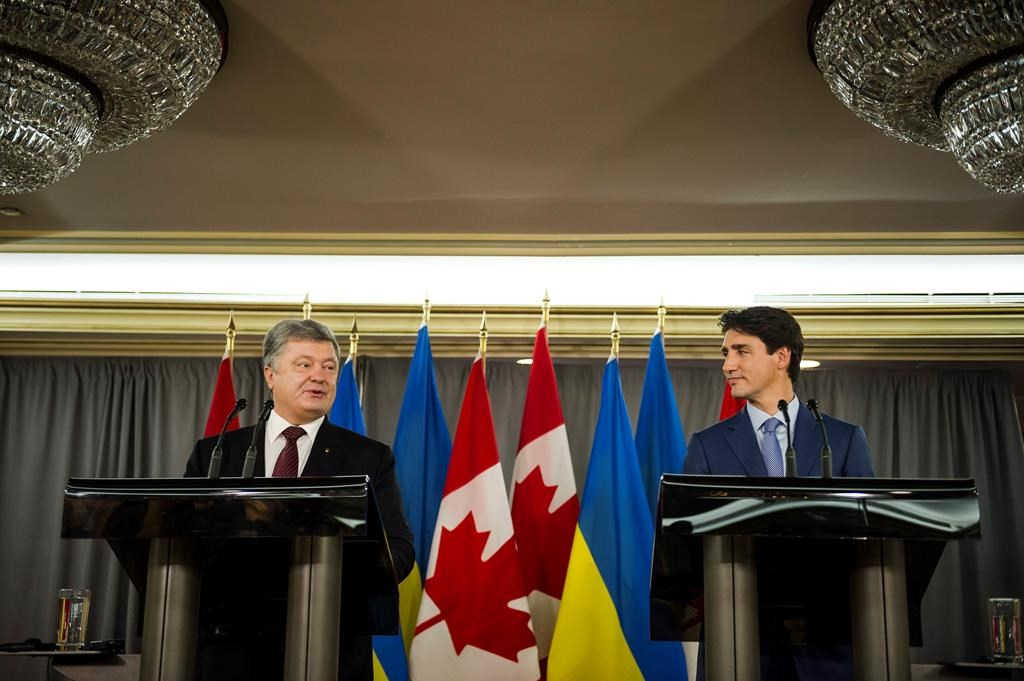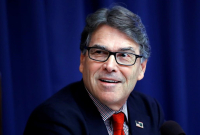Support strong Canadian climate journalism for 2025
Prime Minister Justin Trudeau says the Canadian government will place Ukraine on a list of countries to which it will permit certain weapons exports.
Trudeau made the comments after a meeting with Ukrainian President Petro Poroshenko in Toronto on Friday.
Trudeau says the government has begun to move forward with the lengthy process that would see Ukraine added to the Automatic Firearms Country Control List.
Placing Ukraine on the list would allow exporters of certain prohibited firearms, such as automatic weapons, to submit permit applications to the government for the export of the weapons to the country. There are currently 39 countries on the list.
Former prime minister Stephen Harper's government began consultations on placing Ukraine on the list in 2015, but the process has not moved forward since the Conservative defeat in 2016.
The move comes as both leaders continue to denounce Russian-backed fighters who are involved in a conflict in eastern-Ukraine.
Trudeau said Canada continues to stand with Ukraine against the "illegal, illegitimate incursion of Russia into Ukrainian territory."
"Absolutely," Trudeau said when asked if Ukraine would be added to the list. "(It's) something we're moving forward on. There's a process and a series of criteria that have to be reached but it is something we're working on."
Trudeau said Canada has also sent both police and military personnel to Ukraine to train local officers and soldiers. Poroshenko thanked the Canadian government for that assistance.
"It has significantly reduced the casualties for the soldiers who pass through this training," Poroshenko said. "(It) significantly improves the co-ordination and tactics we learn. This is a win, win, win, co-operation because our Canadian partners also learn from us the unique experience from the Russian hybrid warfare."
Poroshenko and Trudeau are in Toronto for the start of Invictus Games, an international sporting competition for wounded soldiers.
In March, the Canadian military quietly expanded its footprint in Ukraine, giving commanders free rein to send their troops anywhere — except where they might run into Russian forces or separatist rebels.
Canada first deployed about 200 troops to Ukraine in the summer of 2015 to help train government forces in their fight against Russian-backed separatists in the eastern part of the country. Initially, the Canadians were required to stay in the western half of Ukraine, far from the conflict that has continued to rage over the intervening two years, leaving more than 10,000 people dead.
Canada has also provided about $16 million in non-lethal equipment such as helmets, bulletproof vests and winter clothing to the Ukrainian military, and promised another $7.25 million by 2019.





Comments